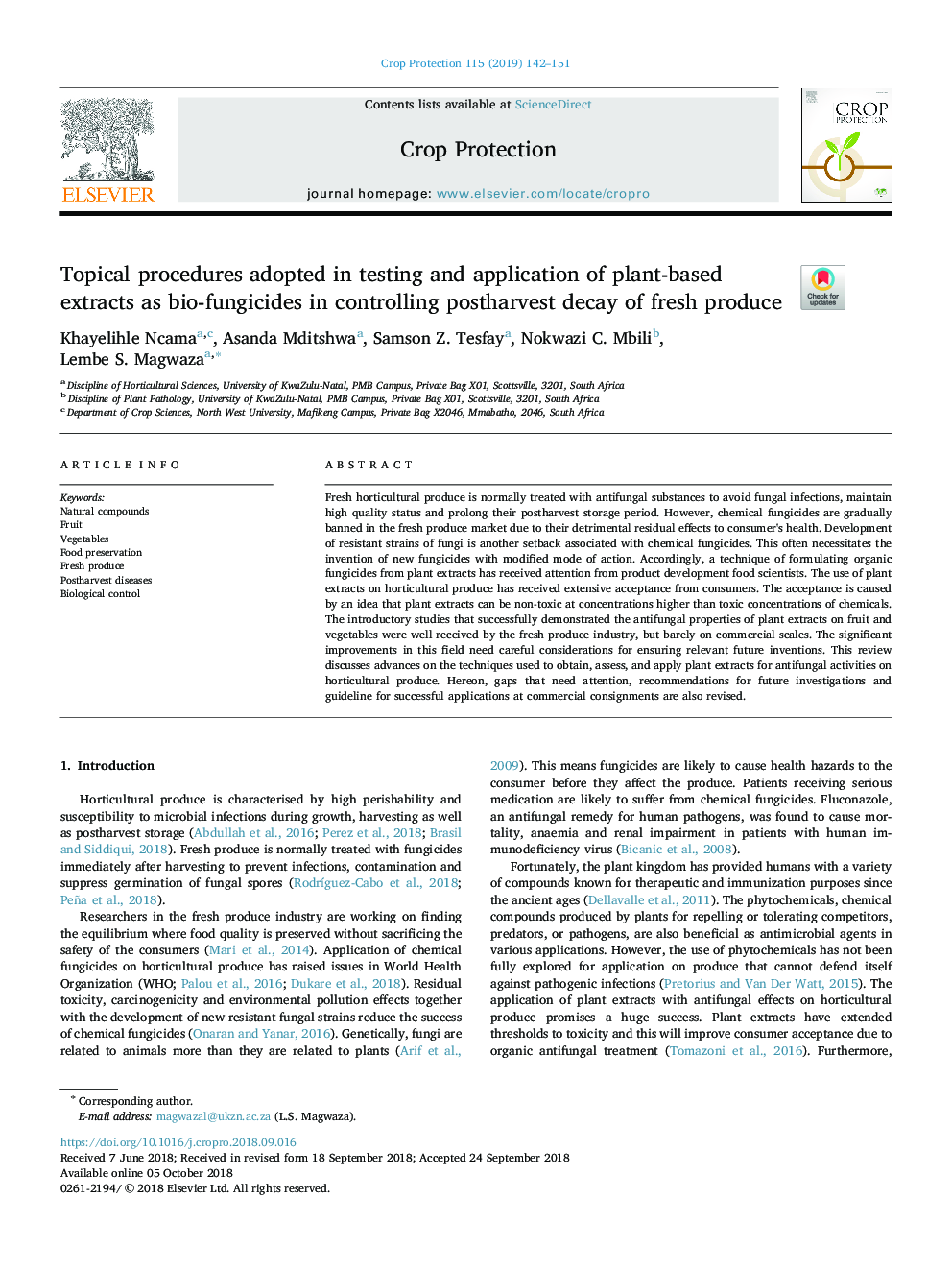| Article ID | Journal | Published Year | Pages | File Type |
|---|---|---|---|---|
| 11024970 | Crop Protection | 2019 | 10 Pages |
Abstract
Fresh horticultural produce is normally treated with antifungal substances to avoid fungal infections, maintain high quality status and prolong their postharvest storage period. However, chemical fungicides are gradually banned in the fresh produce market due to their detrimental residual effects to consumer's health. Development of resistant strains of fungi is another setback associated with chemical fungicides. This often necessitates the invention of new fungicides with modified mode of action. Accordingly, a technique of formulating organic fungicides from plant extracts has received attention from product development food scientists. The use of plant extracts on horticultural produce has received extensive acceptance from consumers. The acceptance is caused by an idea that plant extracts can be non-toxic at concentrations higher than toxic concentrations of chemicals. The introductory studies that successfully demonstrated the antifungal properties of plant extracts on fruit and vegetables were well received by the fresh produce industry, but barely on commercial scales. The significant improvements in this field need careful considerations for ensuring relevant future inventions. This review discusses advances on the techniques used to obtain, assess, and apply plant extracts for antifungal activities on horticultural produce. Hereon, gaps that need attention, recommendations for future investigations and guideline for successful applications at commercial consignments are also revised.
Keywords
Related Topics
Life Sciences
Agricultural and Biological Sciences
Agronomy and Crop Science
Authors
Khayelihle Ncama, Asanda Mditshwa, Samson Z. Tesfay, Nokwazi C. Mbili, Lembe S. Magwaza,
